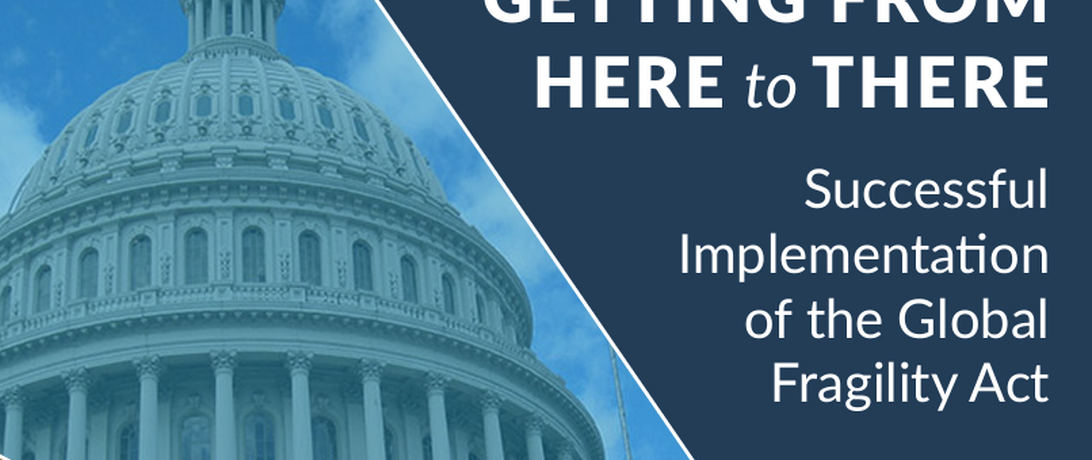
The content was developed through consultations with stakeholders both within and outside of government, as well as with reference to the existing research.
Key Findings
Recommendation 1: Consultations with civil society must be inclusive, transparent, credible, early, innovative, and frequent.
Recommendation 2: Senior-level ownership and interagency cooperation are needed. Agencies must know who owns it.
Recommendation 3: The US government must approach implementation holistically, intentionally, and professionally to ensure timelines are met and authorization matches timelines and appropriations.
Recommendation 4: Use data-driven methods for the selection of priority countries and regions.
Recommendation 5: Use evidence-based and adaptive strategies for design, monitoring and evaluation of programs.
Recommendation 6: Realize that local ownership and youth and women are critical in developing, implementing, monitoring, and evaluating the Global Fragility Strategy (GFS) and country and regional ten-year implementation plans.
Recommendation 7: To achieve a multisectoral approach, development and security assistance programs must also prevent conflict and be conflict-sensitive and integrated holistically into the strategy.
Recommendation 8: Diplomatic and programmatic efforts must be linked.
Recommendation 9: Use the whole iceberg: Partner and coordinate with other governments, international organizations, and the private sector in the specific country or region.
Recommendation 10: Develop the human element: Staffing will determine success.
Recommendation 11: Procurement reform needs to be more streamlined and less prescriptive, and result in procurement mechanisms that are faster, more diversified, and more adaptive, and which allow for longer duration of programs.
Recommendation 12: Ensure that programs countering and preventing violent extremism are evidence-based and that there is a legislative fix for the material support laws.
Recommendation 13: Use USAID’s existing conflict assessment methodology to target and develop prevention strategies and programming based on context-specific analysis.
Recommendation 14: Balance the development of prevention strategies and programming with reference to existing research on best practices, context-specific analysis, and promising new approaches.